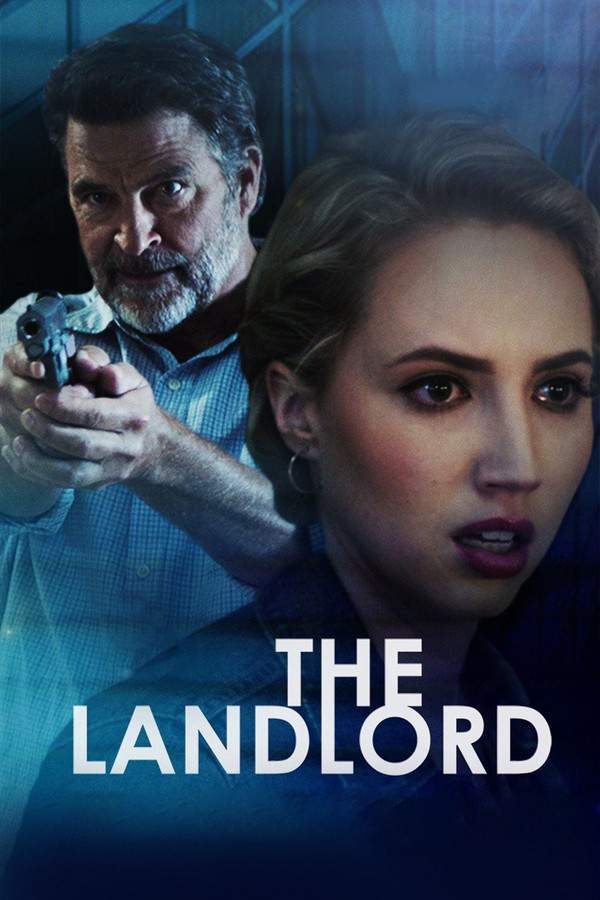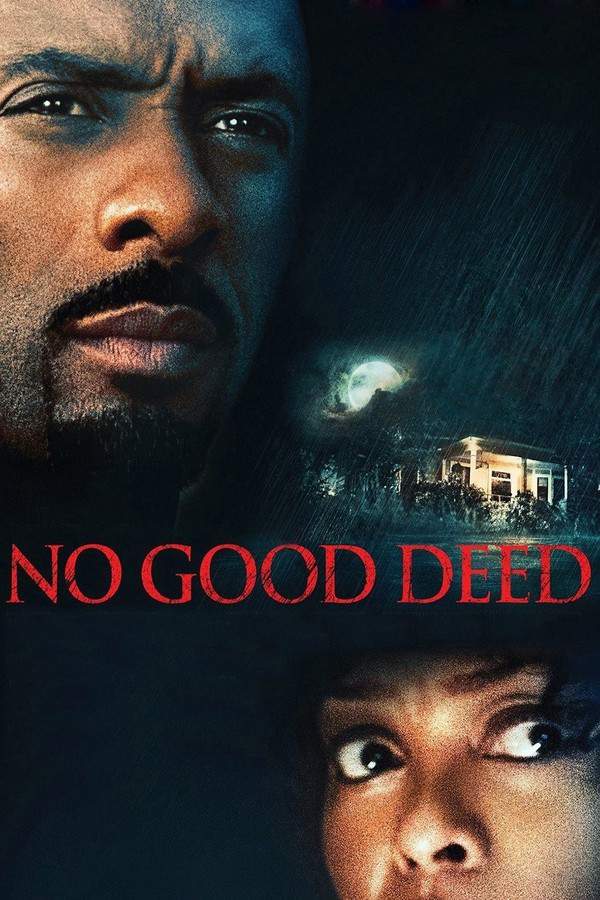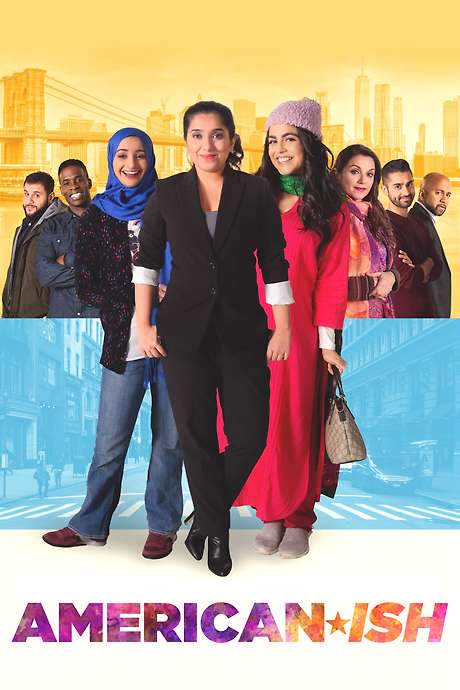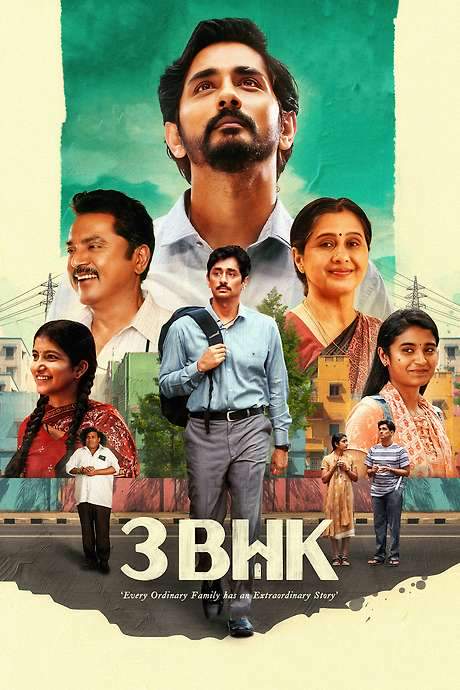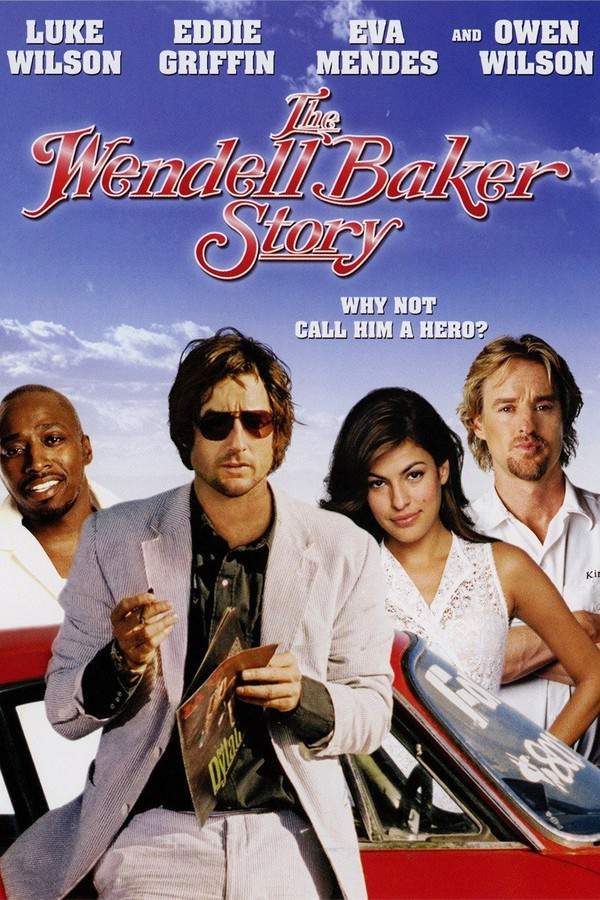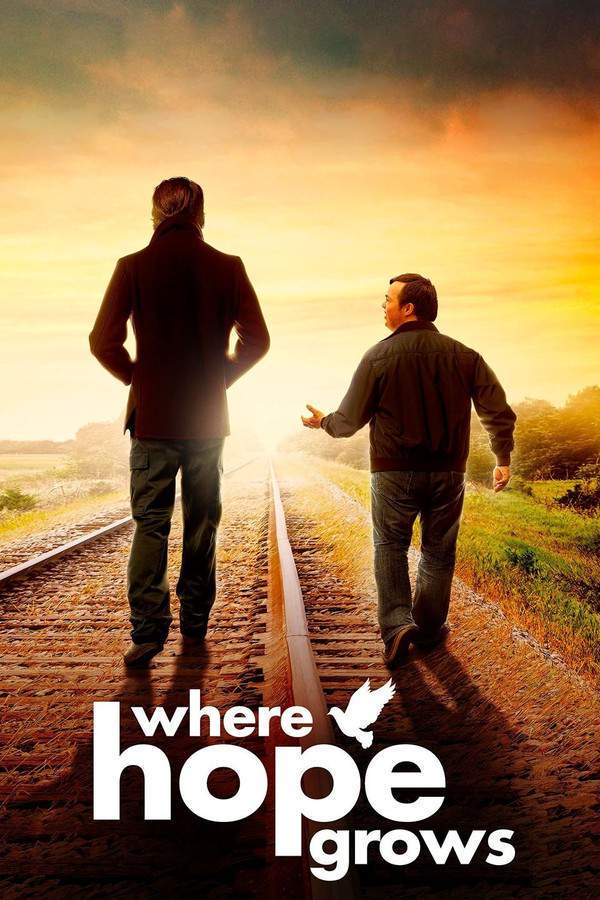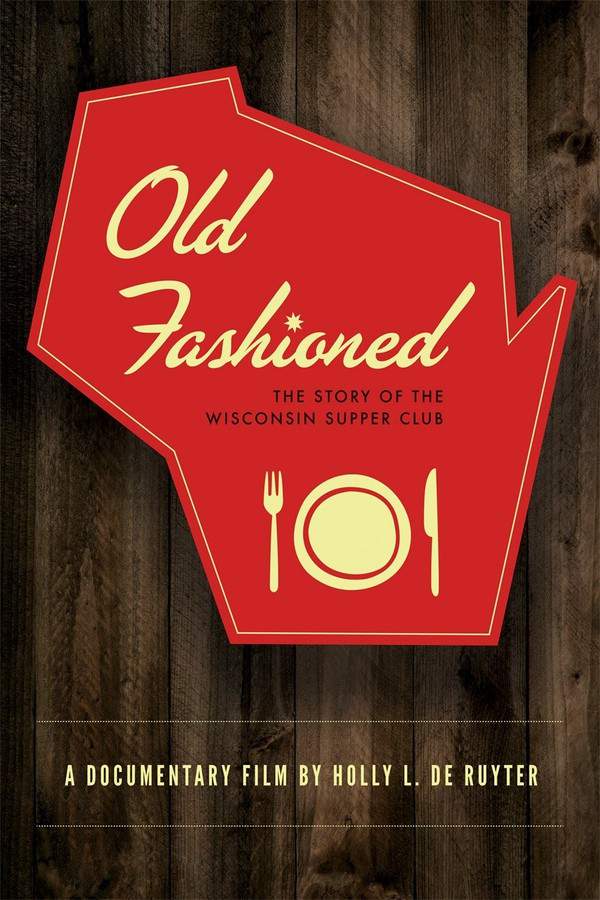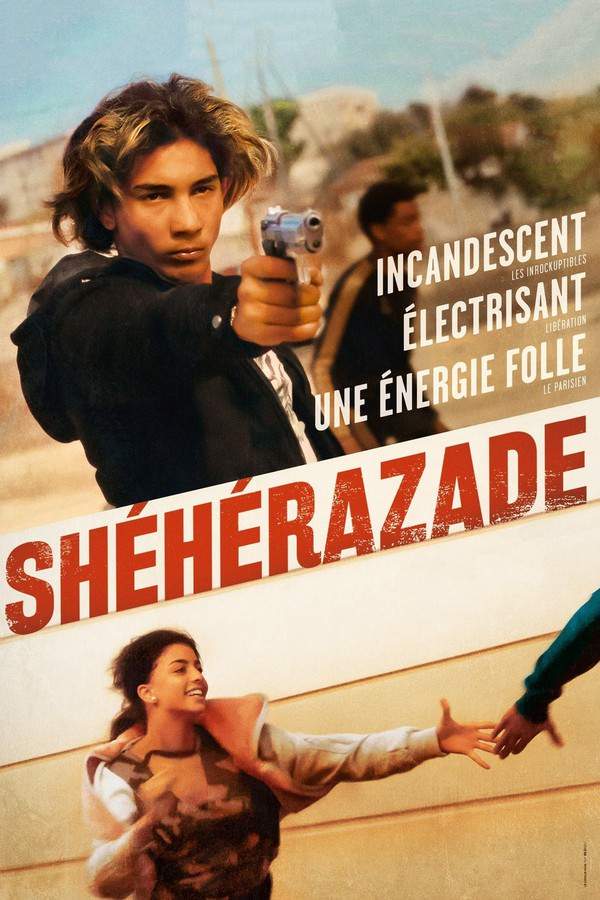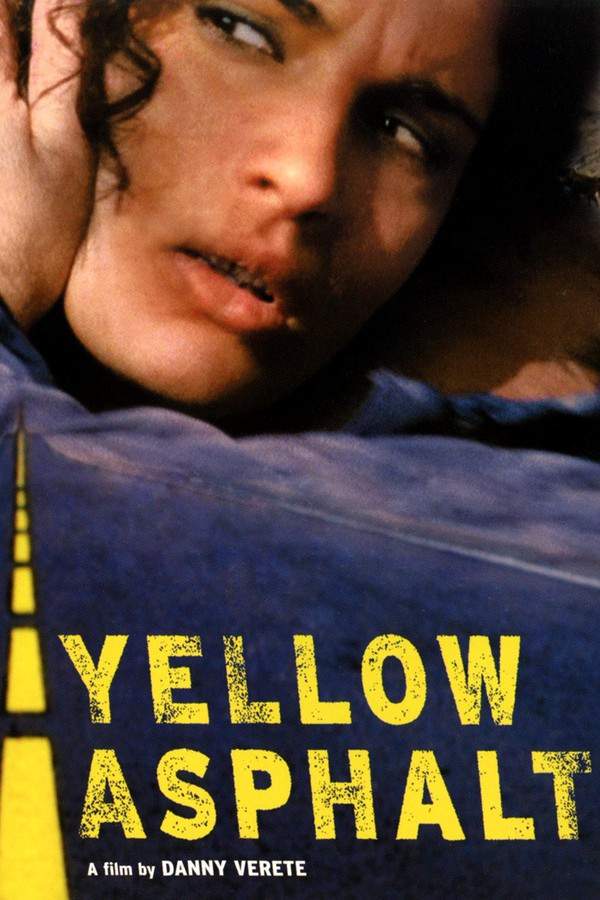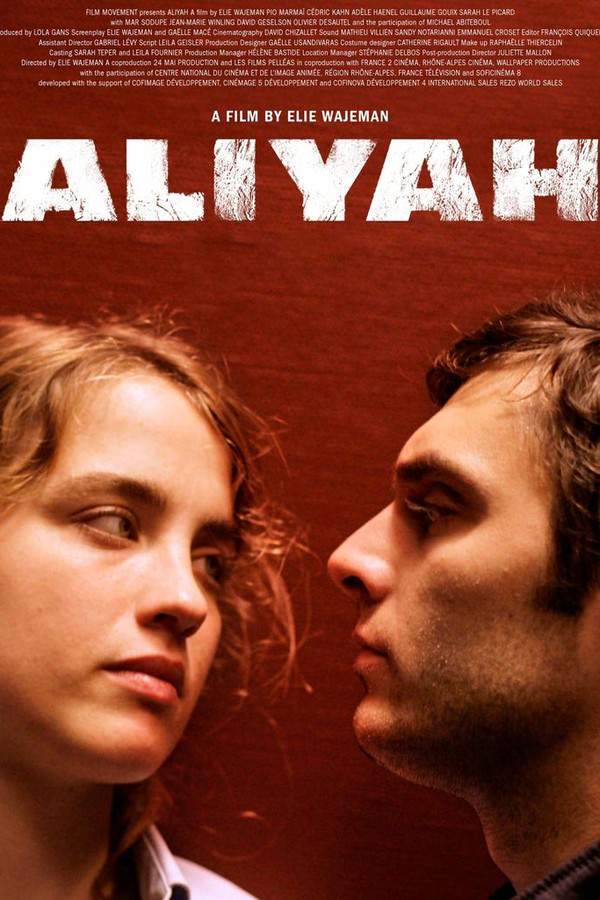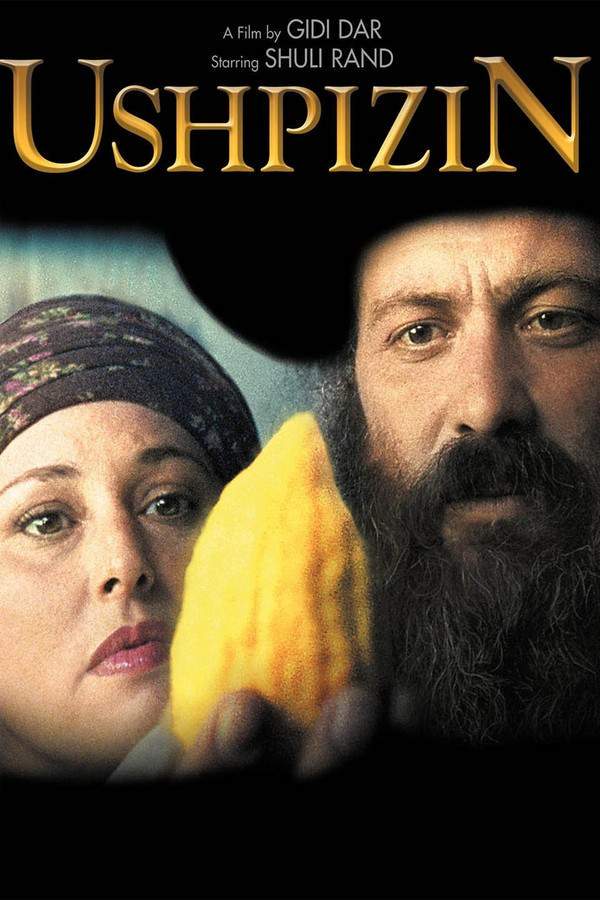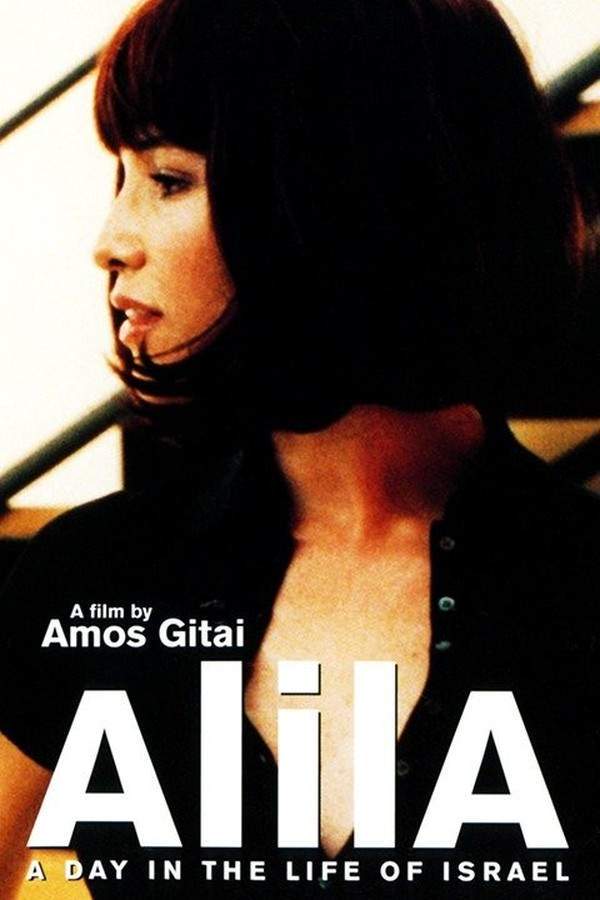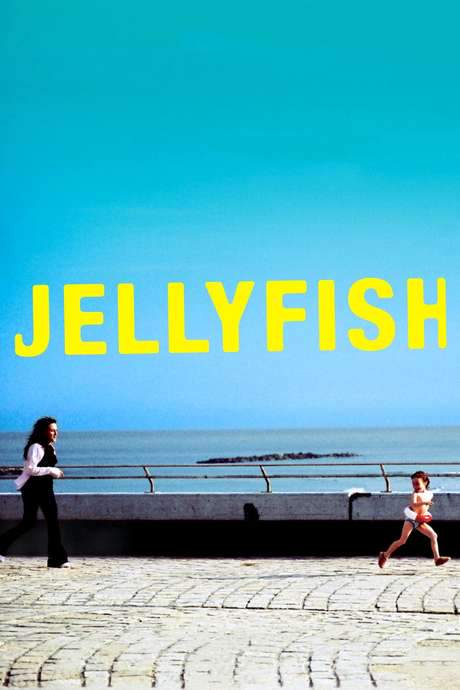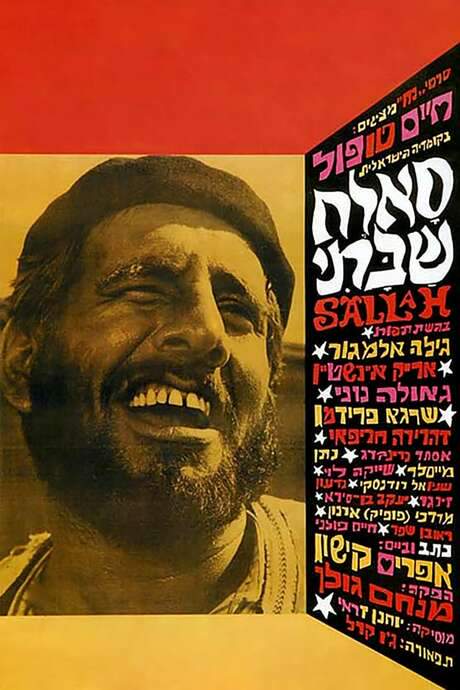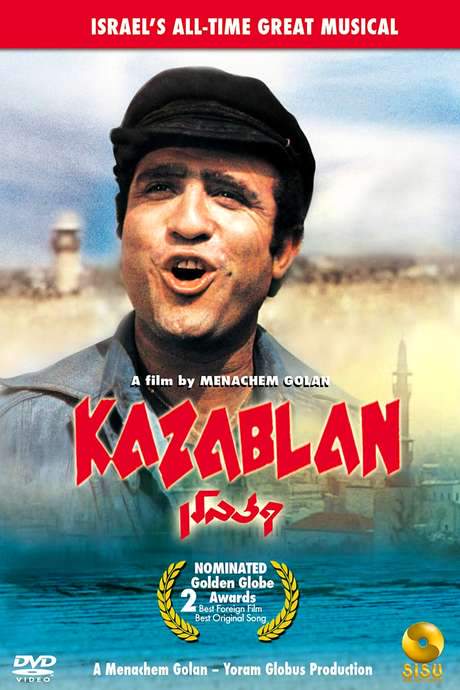
Kazablan
Year: 1973
Runtime: 122 mins
Language: Hebrew
Director: Menahem Golan
Kazablan, an army veteran turned gang leader in Jaffa, hides his resentment with bravado. He falls for Rachel, a woman living with her father and stepmother, sparking scandal and Yanush's wrath, an Ashkenazi shoe‑store owner. As community fights a city plan to raze their homes, raised funds are stolen, Kazablan is jailed and must clear his name.
Warning: spoilers below!
Haven’t seen Kazablan yet? This summary contains major spoilers. Bookmark the page, watch the movie, and come back for the full breakdown. If you're ready, scroll on and relive the story!
Kazablan (1973) – Full Plot Summary & Ending Explained
Read the complete plot breakdown of Kazablan (1973), including all key story events, major twists, and the ending explained in detail. Discover what really happened—and what it all means.
In a dilapidated housing complex in Jaffa, a tapestry of newcomers and old-timers from Europe and the Middle East weaves together daily life, where quiet routines are often interrupted by the loud energy of youth and pride. At the heart of the story is the elderly fisherman Moshiko Bebeuf, Moshiko, whose steady presence anchors the neighborhood as all the strands of the community begin to pull in different directions. Dominating the street’s mood is Yosef Siman-Tov, known to everyone as Kazablan. A child refugee from Morocco, he has built a rough, tight-knit crew—the Jama’a—whose midnight strolls and early morning noises rattle the nerves of residents and set the clock for a clash of cultures, honor, and survival.
From the start, the tension centers on Mr. Feldman, a Polish immigrant who sits at the crossroads of power in the complex. His daughter Rachel, a beacon of youth and grace, becomes the target of Kazablan’s insistence that she greet him with a morning blessing, a ritual that sparks inevitable friction with her father and stirs lingering questions about belonging, pride, and the meaning of respect. The moment is underscored by the stirring, familiar chorus of Kol HaKavod, a sound that marks both triumph and intimidation as the neighborhood negotiates who gets to define honor.
As the city council declares plans to demolish the aging immigrant housing, the residents refuse to yield. They convene to raise funds to reinforce and renovate their homes, a collective act that becomes a mini-revolution of communal agency; the air hums with a hopeful, defiant tune in Democracy. Kazablan’s gang, sensing the shifting balance of power, warns Mr. Feldman to mind where the money goes, hinting at the fragility of trust in a neighborhood on the edge of change.
One evening, Rachel encounters Janus, a local cobbler who loves her though the age gap between them is stark. Janus’s advances are rebuffed, but the moment ignites trouble when Kazablan intervenes to protect Rachel, forcing Janus to retreat and sending the Jama’a into a chorus that betrays their presence with the song Ma Kara. The incident leaves Kazablan battered, a wound that will echo through the next days and shape the town’s judgments. He seeks solace at Madame Rosa’s nightclub, where the community breathes life into the night with the song Jaffa, a reminder of the ties that bind and the forces that pull apart.
Mr. Feldman’s perception of Kazablan begins to shift after the Saturday lunch at his home. The tension eases as Rachel and her stepmother persuade the elder Feldman to join the meal, where Kazablan’s genuine humanity emerges—his war hero backstory, and the medal he earned saving a wounded commander on the battlefield, headlining a quiet truth that challenges the older man’s preconceptions. The shared meal becomes a turning point, and the two families glimpse a possibility of reconciliation. The day continues with a road trip to Jerusalem, a symbolic journey that tests loyalties: when Janus reappears to offer a different path for Rachel, Feldman refuses, and the pair return with the sense that the neighborhood’s future is still up for grabs. In the aftermath, Janus steals a money box that had been central to the residents’ fundraising, tipping the balance toward suspicion and fear.
Back in Jaffa, Kazablan finds himself in custody as the investigation unfolds. The police bring in an old comrade from the army, Josh, the very officer he saved on the battlefield, turning the investigative moment into a clash between past loyalties and present prejudices. The Jama’a respond by redoubling their efforts to renovate the neighborhood, bringing in engineers and workers, and challenging the demolition orders with practical proof of structural stability. The community’s renewed spirit—their hands-on work, their resolve—begins to shed light on the true thief as the investigation lurches forward.
Even as Kazablan denies the theft and his fingerprints surface on the hidden box, the truth remains tangled until a confrontation with Janus reveals the deceit. In a tense confrontation at Janus’s shop, Kazablan confronts the man and, with a final act of force, retrieves the stolen money, exposing Janus’s guilt before the neighborhood. The arrest of Janus, confirmed by the arriving officers, restores a fragile balance and leads to a crucial realization: the people were quick to judge and slow to see the value that Kazablan had brought to their community.
The denouement brings the community full circle. Josh’s invitation to Kazablan becomes a symbol of earned trust rather than mere compliance, and the Jama’a’s renovation of the neighborhood stands as a testament to collective resilience. The film closes with a circumcision ceremony for a baby in the neighborhood, a poignant ritual naming the child after Kazablan and honoring him as the godfather and hero of Jaffa—a living emblem of what it means to belong, to fight for one’s place, and to be welcomed home. The final hymns echo the triumph of community over prejudice, and the screen lingers on the idea that honor, once rightly understood, can lift up an entire neighborhood.
Last Updated: October 09, 2025 at 10:47
Explore Movie Threads
Discover curated groups of movies connected by mood, themes, and story style. Browse collections built around emotion, atmosphere, and narrative focus to easily find films that match what you feel like watching right now.
Movies about communities fighting for home like Kazablan
A spirited neighborhood unites against outside threats to save their community.If you liked the spirited community struggle in Kazablan, explore more movies where a neighborhood bands together against a common foe. These films capture the drama, resilience, and hopeful energy of people fighting to save their homes and preserve their cultural identity.
Narrative Summary
The narrative follows a defined community—often in a specific neighborhood—as it mobilizes against an external force like a corporation or city plan. Conflict arises from internal doubts and external pressure, but the arc moves towards unity and collective action, often culminating in a symbolic victory that affirms the community's strength.
Why These Movies?
These films are grouped by their shared focus on communal resilience, a defiant yet hopeful tone, and the central plot of a neighborhood under siege. They balance medium-intensity drama with heartwarming moments of solidarity, creating an uplifting experience centered on the power of collective action.
Movies about a misunderstood outsider's redemption like Kazablan
A flawed but good-hearted character must clear their name and earn acceptance.Fans of Kazablan's hero will enjoy similar stories of charismatic outsiders wrongfully accused. These films follow a redemptive arc where the protagonist, often from the wrong side of the tracks, fights to clear their name and win over a skeptical community, blending drama with a hopeful conclusion.
Narrative Summary
The narrative arc hinges on a central false accusation or misunderstanding that isolates the protagonist. The plot forces them to take action, revealing their hidden nobility and courage. The journey resolves with the character being vindicated, often reconciling with the community and a love interest, transforming from an outsider to a respected hero.
Why These Movies?
This thread groups movies by a specific character arc: the redemption of a misunderstood figure. They share a medium emotional weight, a steady pacing that allows for character development, and a tone that moves from friction and prejudice towards a happy, validating ending centered on personal honor.
Unlock the Full Story of Kazablan
Don't stop at just watching — explore Kazablan in full detail. From the complete plot summary and scene-by-scene timeline to character breakdowns, thematic analysis, and a deep dive into the ending — every page helps you truly understand what Kazablan is all about. Plus, discover what's next after the movie.
Kazablan Timeline
Track the full timeline of Kazablan with every major event arranged chronologically. Perfect for decoding non-linear storytelling, flashbacks, or parallel narratives with a clear scene-by-scene breakdown.

Characters, Settings & Themes in Kazablan
Discover the characters, locations, and core themes that shape Kazablan. Get insights into symbolic elements, setting significance, and deeper narrative meaning — ideal for thematic analysis and movie breakdowns.

Kazablan Spoiler-Free Summary
Get a quick, spoiler-free overview of Kazablan that covers the main plot points and key details without revealing any major twists or spoilers. Perfect for those who want to know what to expect before diving in.

More About Kazablan
Visit What's After the Movie to explore more about Kazablan: box office results, cast and crew info, production details, post-credit scenes, and external links — all in one place for movie fans and researchers.

Similar Movies to Kazablan
Discover movies like Kazablan that share similar genres, themes, and storytelling elements. Whether you’re drawn to the atmosphere, character arcs, or plot structure, these curated recommendations will help you explore more films you’ll love.
Explore More About Movie Kazablan
Kazablan (1973) Scene-by-Scene Movie Timeline
Kazablan (1973) Movie Characters, Themes & Settings
Kazablan (1973) Spoiler-Free Summary & Key Flow
Movies Like Kazablan – Similar Titles You’ll Enjoy
Shéhérazade (2019) Spoiler-Packed Plot Recap
Asphalt Zahov (2002) Full Movie Breakdown
Aliyah (2013) Story Summary & Characters
Menashe (2017) Detailed Story Recap
Ushpizin (2005) Plot Summary & Ending Explained
Alila (2004) Story Summary & Characters
Ha-Chaverim Shel Yana (2001) Full Movie Breakdown
The Rashevski Tango (2003) Full Summary & Key Details
Jellyfish (2007) Film Overview & Timeline
Sallah (1964) Ending Explained & Film Insights
Jewish Luck (1925) Full Movie Breakdown
99 Dizengoff Street (1979) Movie Recap & Themes
Jaffa (2009) Spoiler-Packed Plot Recap
Katz and Carrasso (1971) Complete Plot Breakdown
Tzanani Family (1976) Detailed Story Recap

